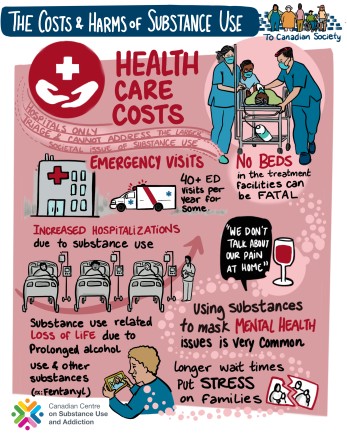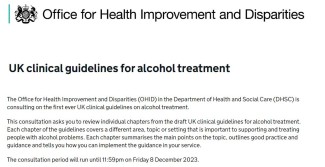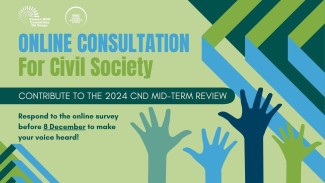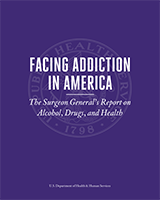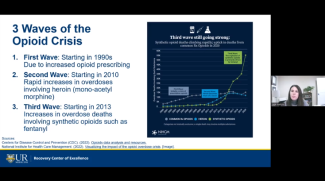
Tìm kiếm

“Safer Drug Supply” Measures in Canada to Reduce the Drug Overdose Fatality Toll: Clarifying Concepts, Practices and Evidence Within a Public Health Intervention Framework
In North America, there's a serious problem with drug overdose deaths, mainly due to users encountering very strong and dangerous illegal opioids like fentanyl. Although various efforts have been made in Canada to address this issue, the...
2024 NIDA International Forum: Call for Research Poster Abstracts and Travel Award Requests
Call for Research Poster Abstract Submissions and Travel Award Requests
Submission Deadline: January 14, 2024
Present your international drug use and addiction research during the 2024 NIDA International Forum, which will be held June 14...
Screening, Brief Intervention and Referral to Treatment for Substance Use. Part II: Introduction to Brief Interventions and Referral to Treatment
Screening, Brief Intervention and Referral to Treatment for Substance Use. Part I: Introduction to SBIRT and Screening Tools for Substance Use.
Uso Nocivo de Dispositivos Tecnológicos y Consumo de Sustancias. Parte II “Inicio Temprano de Consumo y el Uso Nocivo de TIC"
Uso Nocivo de Dispositivos Tecnológicos y Consumo de Sustancias. Parte II “Inicio Temprano de Consumo y el Uso Nocivo de TIC"
New draft guidance on harmful gambling
The new draft guideline on harmful gambling recommends health professionals should ask people about gambling if they attend a health check or GP appointment about a mental health condition.
These guideline aims to ensure that those...
Open Consultation: UK clinical guidelines for alcohol treatment
The consultation on the UK clinical guidelines for alcohol treatment is now open.
Consultation description
This consultation asks you to review individual chapters from the draft UK clinical guidelines for alcohol treatment.
Each chapter...
Performing solidarity? A scoping review of alcohol marketing to sexual and gender minorities
Background
Harmful alcohol use is more prevalent among sexual and gender minorities (SGMs) than their cisgender/heterosexual counterparts. The reasons for this are complex, incorporating alcohol’s normalization and availability in social...
Lisbon Addictions 2024: Call for abstracts
Lisbon Addictions 2024 is a multidisciplinary conference that provides both a forum for networking and an opportunity to showcase cutting-edge research. The conference is intended to inform policy development and practice through a better...
Cannabis and amphetamine use among school-going adolescents in sub-Saharan Africa: a multi-country analysis of prevalence and associated factors
Uso Nocivo de Dispositivos Tecnológicos y Consumo de Sustancias. Parte I “Desafíos durante la Infancia”
Contribute to the 2024 CND Mid-term Review
RESPOND TO THE ONLINE CONSULTATION
The global survey is part of a broader consultation process in preparation for the 2024 Mid-term review of the Commission on Narcotic Drugs. It aims to gather inputs from NGOs working on drug policy...
Who Helps The Helper? A Skills Transfer Program for Behavioural and Substance Use Professionals
Cost of Substance Use on the Economic Productivity of Canadians – Findings at a Glance
In 2020, the Canadian Substance Use Costs and Harms (CSUCH) data reported that substance use resulted in a loss of $22.4 billion in productivity. This represents 45.6% of the overall cost and harms of substance use, which amounted to $49.1...
Recovery: The Many Paths to Wellness (Chapter 5 from Facing Addiction in America)
The Many Paths to Wellness: Explore Chapter 5 in "Facing Addiction in America: The Surgeon General's Report on Alcohol, Drugs, and Health," which defines the concept of recovery from substance use disorders and reviews methods used by...
Synthetic Opioids: Navigating a Changing Landscape in the Treatment of Opioid Use Disorder
Substance Use Disorders (SUD) and Type 2 Diabetes: Integration of Evidence-Based Diabetes Care to Promote Quality Health Outcomes
Male Patient Drop-Out from Addiction Inpatient Treatment in the Czech Republic: A Study Protocol
BACKGROUND: The dropout rate from the treatment of patients with substance use disorders (SUD) negatively affects overall treatment outcomes. Little is known about the specific role of various psychiatric and psychosocial factors in the...
Sports Betting and Depression among Youths in the SouthSouth Region of Nigeria
BACKGROUND: It has been noted that those addicted to gambling are at a high risk of developing mental health problems such as depression.
AIMS: This study was designed to determine the effect of participating in sports betting on...
Share the Knowledge: ISSUP members can post in the Knowledge Share – Sign in or become a member


